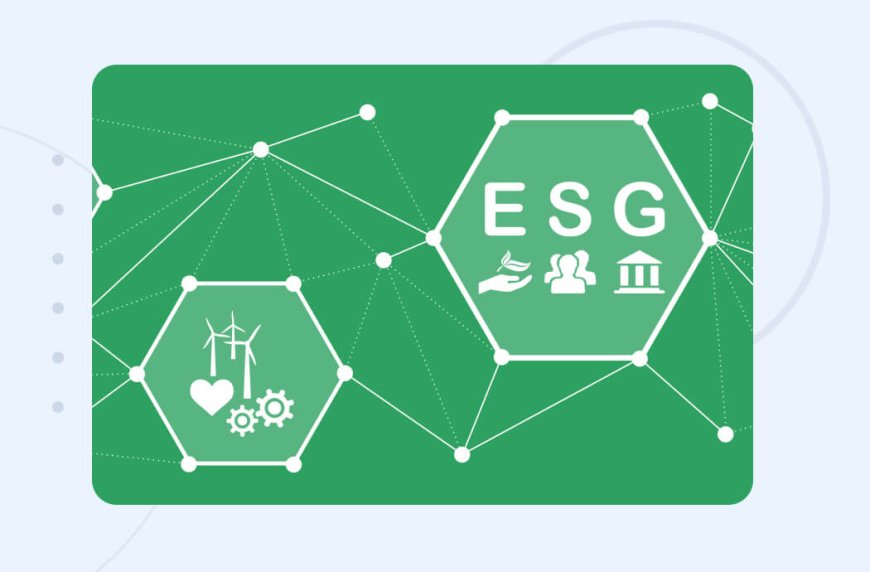The Evolution of ESG Reporting Solutions: From Compliance to Strategic Advantage

In the modern business landscape, Environmental, Social, and Governance (ESG) reporting has become a crucial component of corporate strategy. Initially driven by regulatory requirements and investor demands, ESG reporting solutions have evolved significantly, transforming from mere compliance tools into strategic assets that offer substantial business value. This article explores the evolution of ESG reporting solutions, highlighting their journey from compliance-focused tools to strategic drivers of corporate success.
The Origins of ESG Reporting
The concept of ESG reporting emerged as businesses and investors began to recognize the importance of non-financial factors in assessing a company's long-term sustainability and performance. Early ESG reporting efforts were primarily driven by regulatory requirements and were often focused on basic disclosure of environmental impacts and governance practices. The reporting process was largely manual and time-consuming, with companies struggling to compile data from various sources to meet regulatory obligations.
The Shift Towards Comprehensive ESG Reporting
As the awareness of ESG issues grew, so did the expectations from stakeholders. Investors, consumers, and regulatory bodies began demanding more detailed and transparent ESG disclosures. This shift prompted the development of more sophisticated ESG reporting solutions designed to address the growing complexity of ESG data and reporting requirements.
1. Emergence of Standards and Frameworks: The introduction of standardized ESG reporting frameworks, such as the Global Reporting Initiative (GRI), Sustainability Accounting Standards Board (SASB), and Task Force on Climate-related Financial Disclosures (TCFD), marked a significant turning point. These frameworks provided structured guidelines for ESG reporting, enhancing consistency and comparability across companies.
2. Advancements in Technology: The advent of technology revolutionized ESG reporting. Automated reporting solutions and data management tools began to replace manual processes, allowing for more efficient data collection, analysis, and reporting. Technologies such as artificial intelligence (AI) and machine learning (ML) started playing a role in analyzing large volumes of ESG data, providing deeper insights and predictive analytics.
3. Integration with Corporate Strategy: ESG reporting solutions began to be integrated with broader corporate strategies. Companies recognized that ESG performance was not just about compliance but also about creating value and achieving strategic goals. Reporting solutions evolved to support this integration, providing insights that could drive decision-making and strategic planning.
Key Features of Modern ESG Reporting Solutions
Today's ESG reporting solutions offer a range of features that go beyond mere compliance. Some of the key features include:
1. Real-Time Data Integration: Modern solutions integrate data from various sources in real-time, providing up-to-date insights and facilitating more timely reporting.
2. Advanced Analytics: Leveraging AI and ML, contemporary ESG reporting tools offer advanced analytics capabilities, helping companies identify trends, assess risks, and predict future ESG performance.
3. Customizable Reporting: Solutions now allow for customizable reporting formats tailored to different stakeholder needs, including investors, regulators, and consumers.
4. Enhanced Transparency: Features like audit trails and data validation ensure greater transparency and accuracy in reporting, which is crucial for building trust with stakeholders.
5. Compliance Management: Automated updates to reporting standards and regulations help companies stay compliant with evolving requirements, reducing the risk of regulatory penalties.
The Strategic Advantage of ESG Reporting Solutions
The evolution of ESG reporting solutions has transformed them from compliance tools into strategic assets. Companies leveraging these advanced solutions can gain several strategic advantages:
1. Improved Investor Relations: Transparent and comprehensive ESG reporting enhances investor confidence and attracts capital by demonstrating a commitment to sustainability and responsible governance.
2. Enhanced Reputation: Effective ESG reporting helps build a positive corporate reputation, attracting customers, talent, and partners who value sustainability and ethical practices.
3. Risk Management: By providing insights into ESG risks and opportunities, modern reporting solutions enable companies to proactively manage risks and capitalize on opportunities related to sustainability.
4. Operational Efficiency: Streamlined data collection and reporting processes reduce administrative burdens and improve operational efficiency, freeing up resources for other strategic initiatives.
5. Strategic Decision-Making: Access to detailed ESG data and analytics supports informed decision-making and aligns sustainability efforts with corporate strategy.
Conclusion
The evolution of ESG reporting solutions reflects a broader shift towards integrating sustainability into core business strategies. From their origins as compliance-focused tools, these solutions have grown into powerful instruments that offer strategic advantages, driving value and enhancing corporate performance. As the importance of ESG considerations continues to rise, businesses that invest in advanced ESG reporting solutions will be better positioned to navigate the complexities of the modern business environment and achieve long-term success.
What's Your Reaction?





















